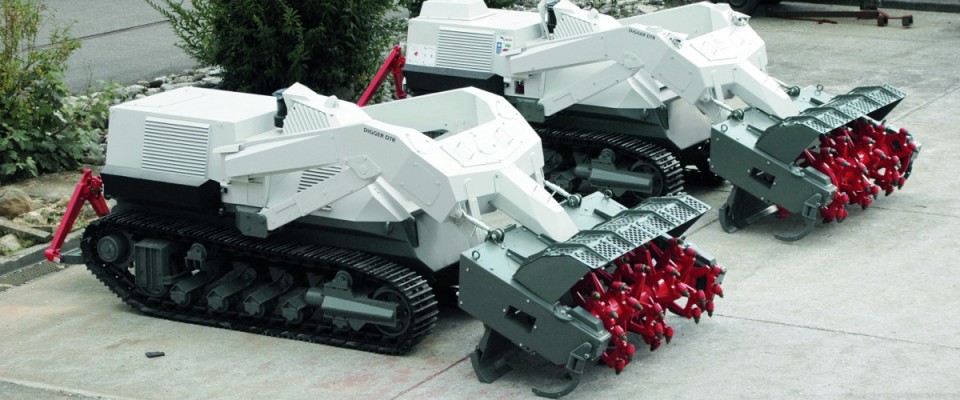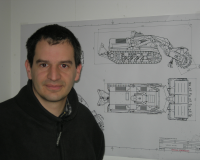
Robohub.org
082
Demining and defusing with Frédéric Guerne and Paul Bosscher


In this episode we speak with Frédéric Guerne, director of Digger DTR, and with Paul Bosscher, chief robotics engineer at Harris Corp., about robots which assist us in demining land-mine fields and defusing IEDs.

Frederic Guerne
Frederic Guerne is passionate about building machines. An engineer by training, he spent several years building motors for Sonceboz SA. In 1994, he became ardently aware of land-mine problems. Convinced to help eradicate land-mines, he joined Prof. Nicoud at the EPFL, who was at the time working on state-of-the-art demining technologies. For two years, they worked on the detection of mines, until one day Frederic Guerne was contacted by the founder of the Swiss Foundation for Mine Action. This meeting led to the creation of Digger, which is now a major, non-profit demining company based in Switzerland. In our interview, we will talk about the process of demining, Digger’s D-2 and D-3 demining robots, and also about the challenges of running a non-profit based humanitarian company.

Paul Bosscher
Paul Bosscher is a chief robotics engineer at the Government Communication System Division at Harris Corp. in the USA. Dr. Bosscher received the B.S. degree in mechanical and electrical engineering from Calvin College, Grand Rapids, MI, in 2001, and the M.S. and Ph.D. degrees in mechanical engineering from the Georgia Institute of Technology (Georgia Tech), Atlanta, in 2003 and 2004, respectively.
Before joining Harris Corp., Dr. Bosscher was an Assistant Professor in the Department of Mechanical Engineering, Ohio University, Athens.
In our interview, we talk about the unmanned ground vehicle he is currently developing together with his team at Harris Corp., with the goal of providing the intuitive dexterous manipulation capabilities necessary to surgically defeat IEDs remotely.
Links:
- Download mp3 (27.7 MB)
- Subscribe to Robots using iTunes
- Subscribe to Robots using RSS
- Harris Corp. Homepage
- Digger Homepage
tags: c-Exploration-Mining, cx-Military-Defense, podcast, Service Professional Military Other, Social aspect





